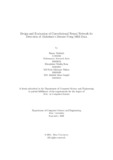| dc.contributor.advisor | Parvez, Mohammad Zavid | |
| dc.contributor.author | Mahbub, Riasat | |
| dc.contributor.author | Azim, Muhammad Anwarul | |
| dc.contributor.author | Reza, Khondaker Masfiq | |
| dc.contributor.author | Mahee, Md Nafiz Ishtiaque | |
| dc.contributor.author | MD. Zahidul Islam Sanjid | |
| dc.date.accessioned | 2022-05-11T04:50:15Z | |
| dc.date.available | 2022-05-11T04:50:15Z | |
| dc.date.copyright | 2021 | |
| dc.date.issued | 2021-09 | |
| dc.identifier.other | ID 17201146 | |
| dc.identifier.other | ID 18101624 | |
| dc.identifier.other | ID 18301104 | |
| dc.identifier.other | ID 18101489 | |
| dc.identifier.other | ID 18101564 | |
| dc.identifier.uri | http://hdl.handle.net/10361/16588 | |
| dc.description | This thesis is submitted in partial fulfillment of the requirements for the degree of Bachelor of Science in Computer Science and Engineering, 2021. | en_US |
| dc.description | Cataloged from PDF version of thesis. | |
| dc.description | Includes bibliographical references (pages 22-25). | |
| dc.description.abstract | Alzheimer’s Disease (AD) is a neurological condition where the decline of brain
cells causes acute memory loss and severe loss in cognitive functionalities. Various
Neuroimaging techniques have been developed to diagnose AD; among those, Magnetic
Resonance Imaging (MRI) is one of the most prominent ones. Recent progress
in medical image analysis using deep learning especially has automated this task
significantly. Although the state-of-the-art architectures have achieved human-level
performance in classifying AD images from Normal Control (NC), they often require
predefined Regions of interest as a basis for feature extraction. This condition not
only requires specialized domain knowledge of the human brain but also makes the
overall design complicated. In this study, we designed a 15 layer Neural network
architecture that can facilitate AD diagnosis without being dependent on any such
neurological assumption. The network was tested over ADNI-1, a benchmark MRI
dataset for AD research, and found an accuracy of 92.41% (AUC = 0.93). This network
was further augmented with the help of ensemble learning other well known
pre trained models for more accurate and consistent results, resulting in an overall
accuracy of 92.44% for the entire system. | en_US |
| dc.description.statementofresponsibility | Riasat Mahbub | |
| dc.description.statementofresponsibility | Muhammad Anwarul Azim | |
| dc.description.statementofresponsibility | Khondaker Masfiq Reza | |
| dc.description.statementofresponsibility | Md Nafiz Ishtiaque Mahee | |
| dc.description.statementofresponsibility | MD. Zahidul Islam Sanjid | |
| dc.format.extent | 25 pages | |
| dc.language.iso | en | en_US |
| dc.publisher | Brac University | en_US |
| dc.rights | Brac University theses are protected by copyright. They may be viewed from this source for any purpose, but reproduction or distribution in any format is prohibited without written permission. | |
| dc.subject | Alzheimer’s disease | en_US |
| dc.subject | Magnetic resonance imaging | en_US |
| dc.subject | Convolutional neural network (CNN) | en_US |
| dc.subject.lcsh | Neural networks (Computer science) | |
| dc.subject.lcsh | Computer networks | |
| dc.title | Design and evaluation of convolutional neural network for detection of Alzheimer’s disease using MRI data | en_US |
| dc.type | Thesis | en_US |
| dc.contributor.department | Department of Computer Science and Engineering, Brac University | |
| dc.description.degree | B. Computer Science | |

